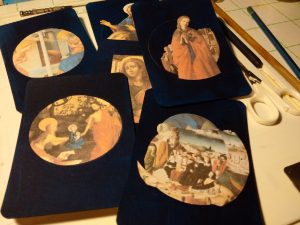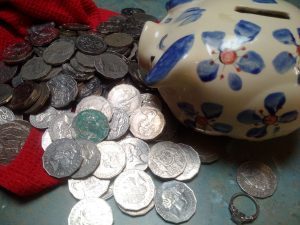Dear Yogis,
I heard an interesting definition of psychiatry today – “The medical treatment of the soul”. Does this seem correct/accurate/possible to you?
Thank you for your replies to my newsletters, and your responses with classes and workshops. Here is the coming few days on ZOOM. Let me know which classes you want to join.
SCHEDULE FRIDAY TO SUNDAY>>>
FRIDAY:
11am YOGA CAFE (free). We are going to try to wind a hijab (our version), and one student told us she is going to wear a Rajasthani Wedding Sari – hard to top I would say unless you have something really stunning as a Hijab – Embroidered, bejewelled?!
5.30pm RESTORATIVE YOGA ($75 for 4 or $185 for 10) with weights and straps.
SATURDAY:
12.30 RESTORATIVE YOGA ($75 for 4 or $185 for 10)
 2pm TAROT TRAINING ($50 for 3)
2pm TAROT TRAINING ($50 for 3)
SUNDAY:
10am TEACHER TRAINING – Topic: The Bhagavadgita.($20)
NEW CLASS 2PM SUNDAY – MAKING YOUR OWN TAROT DECK ($50 for 3 classes)
To pay for your chosen class, please go to the landing page on www.yogabeautiful.com.au click on donate at the bottom right hand side. Please leave your name and what the amount is for. PayPal will send a receipt. You don’t need a PayPal account, they take credit and debit card.
BEING SUCCESSFUL – PROSPERITY
The idea “I have a job that’s enough for me to live on, and that is enough for me”, plays no part in the philosophy of the Buddha.
 Just in case you thought being spiritual mean being poor, the Buddha never imposed limitations on his lay follower’s efforts to be successful; instead, he clearly encouraged them to strive for success. Whether in “trading, cattle farming, archery, government service, or any other profession or industry,” a layperson (this I think means you) should strive to advance in his or her respective field. Notably, the motivation to achieve success is an important requirement in any person’s life — an attitude of “I have a job that’s enough for me to live on” has no place in the Buddha’s teaching.
Just in case you thought being spiritual mean being poor, the Buddha never imposed limitations on his lay follower’s efforts to be successful; instead, he clearly encouraged them to strive for success. Whether in “trading, cattle farming, archery, government service, or any other profession or industry,” a layperson (this I think means you) should strive to advance in his or her respective field. Notably, the motivation to achieve success is an important requirement in any person’s life — an attitude of “I have a job that’s enough for me to live on” has no place in the Buddha’s teaching.
Next, the Buddha set no limits to a layperson’s wealth and never told his prosperous lay followers to stop or slow down. Instead, he unequivocally encouraged them to plan, organize, and even to be as successful as they could be…
The emphasis, here, is on the fact that the Buddha enforced no restrictions on the layperson’s personal wealth. Using the phrase “immense wealth” (ulare bhoge), he indicated the amount one could strive to amass — in other words, as much wealth as possible.
We always teach that the more wealth you have attracted the more wealth you can give away, and the happier you and the world will be. Like most of us you have probably come to this planet at this time to learn (among other things), how to deal with material wealth, and the material physical world in general. It is not about how much money you have, it is all about how you achieve it, how it changes you, and what you do with it.
A RECIPE FOR THE DAY.
CORN BUTTER. This is not butter with corn in it, this recipe is for butter made from corn. A great recipe if you have access to lots of corn, especially if you grow your own. As you can imagine, although corn is juicy, it is not as juicy as a cow. You won’t get heaps of butter, but it is a good use for corn. ( I am going to try with canned corn and will let you know the result).
INGREDIENTS : 8 ears of fresh corn (butter or salt to taste – optional)
METHOD:
1. Cut the corn kernels from the core making sure that you scrape as much of the buttery juice as you can away from the core.
2. Put the juicy corn into a food processor and run it for a couple of minutes until it is as smooth as possible.
3. Push the juice through a fine sieve. Put the skin aside and use in biscuits or breakfast. Don’t throw away.
4. This is where the magic happens. Put the juice in a smallish saucepan and heat gently stirring/whisking all the time until the juice thickens to a buttery béchamel sauce consistency (this will take about 4 minutes of constant whisking). You can test it by putting a teaspoonful on a plate. It becomes a spreadable thickness when ready. About the same as thick custard.
4. You can add butter to increase the quantity…add salt if this is your taste, but really it needs nothing. It has a lovely buttery, corn taste all by itself.
LEARN SOMETHING NEW EVERY DAY. Listen differently. Take a new look at your garden, a new look at your house. Stand on your head.
NAMASTE – JAHNE



